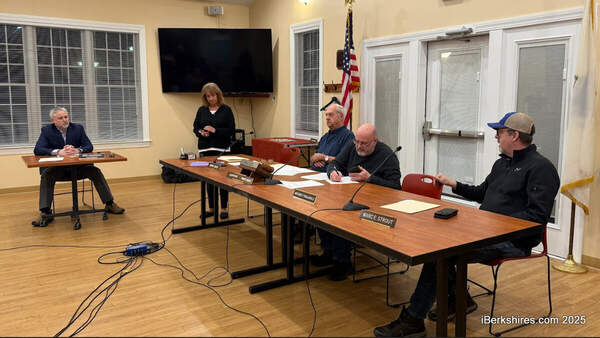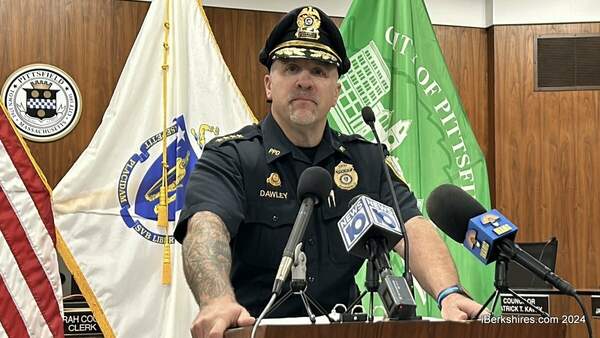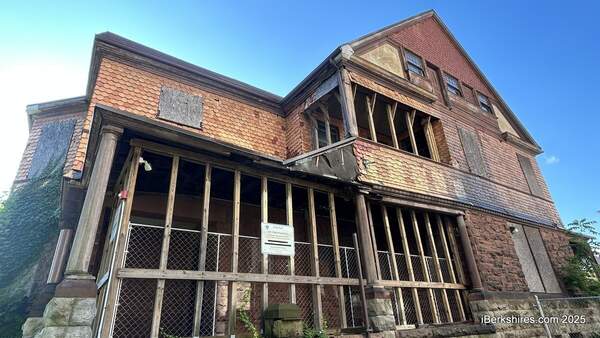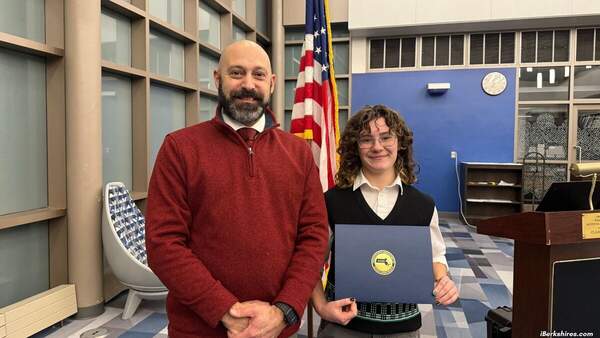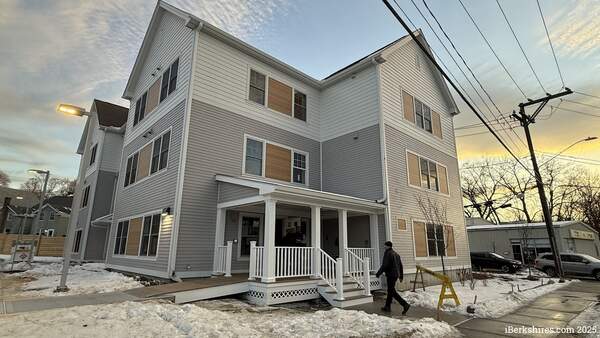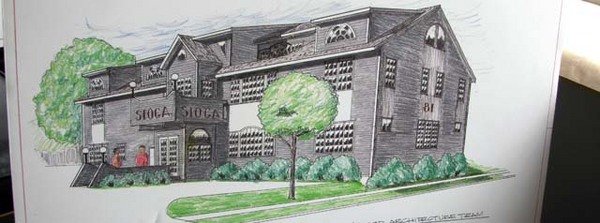
SIOGA Club Needs Boost to Cross Threshold
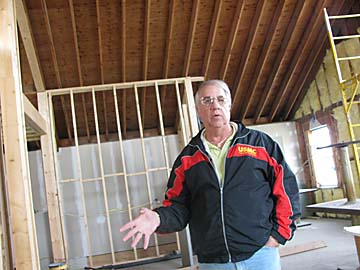 SIOGA Club President Douglas Malins, standing on the unfinished second floor, said the club needs help to open its new home. |
Anyone else standing in the planned home of the SIOGA Club might be intimidated by the amount of work left to do. But Douglas Malins doesn't see a half-finished structure, he sees a meeting room full of people, a welcoming lobby and well-equipped offices staffed with professionals ready to help.
"It's going to be great, really wonderful, when it's done," said Malins on Friday, as he proudly pointed to the completed bathrooms and nearly done meeting rooms. "We didn't cut any corners."
Five years ago, SIOGA (Sobriety Is Our Greatest Asset) lost its meeting place to fire. It bought the spacious two-story, multiple-unit structure on Linden Street a year later for $60,000 and started working on it largely with volunteer labor, donations and grants.
It's been a long road but Malins, president of the non-profit organization, can see the beginning of the end — except it's 30 days and $35,000 to $40,000 away.
"Basically, right now we're broke," he said. "We're so close. If we had the money ... ."
That lack of cash has brought the work to halt, but Malins thinks residents and local organizations understand the need for a safe, secure place for the area's many support groups to meet and will step up to help.
"There are very few families who haven't been affected by SIOGA one way or another," he said. "They may be involved, or their relatives or friends or co-workers.
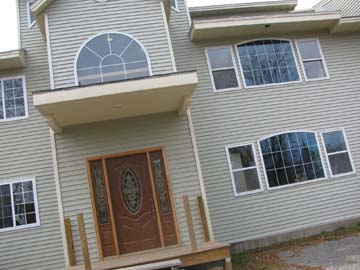 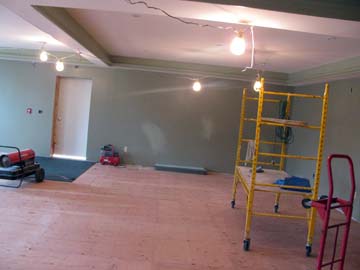 Much of the exterior has been completed but electrical work and a septic hookup are necessary for the building to open to the public. Right, the large meeting room is nearly complete. Much of the exterior has been completed but electrical work and a septic hookup are necessary for the building to open to the public. Right, the large meeting room is nearly complete. |
The club works closely with the local court and medical systems dealing with addictive behaviors and with other organizations that help first-time offenders. It's regularly hosted Alcoholics Anonymous, for example.
Providing support against substance abuse is even more imperative in tough times, said Malins. "People under stress because of the recession can revert back to their comfort zones, to their old habits of drinking or doing drugs."
The building also is meant to be a community resource for all ages, as well as fill a need for a comfortable and non-alcoholic gathering space for people overcoming addictive habits.
Even in its current condition, the Linden Street building is a far cry from the room on First Street where the 30-year-old support group once met. But the house sat vacant for more than a decade and needed structural work and a new roof.
The first phase of the project was to stabilize the building, and side and insulate and install windows where needed. Most of that's been done, along with taking down a small vacant house on the lot next door to provide more parking. The building will be fully handicapped accessible with one large meeting room and several smaller ones, an office, kitchen, four or five offices that will be leased, full Internet access and audio-visual equipment for recreation and presentations.
The goal is to maintain the building through leasing the offices and renting out the hall for activities such as dances, dinners and baby showers (without the temptation of alcohol present). Malins said the club also wants to work with the district attorney's office on doing outreach with children and youngsters to help prevent substance abuse.
The club might have had its certificate of occupancy already if problems with an old sewer pipe hadn't cropped up. Now a patch of yard will have to be dug up and and new connections made. The new electrical service still needs to be installed, too. That all will likely take around $5,000; add in the parking lot and the total comes to around $35,000.
It will take another $100,000 to finish off the second floor, not counting that elevator. But the splash the club made two years ago when elected officials and community leaders lined up in support has dried up.
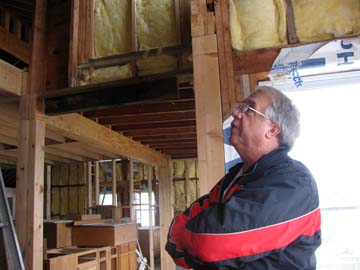 The building is designed to host an array of local support groups, with offices for practices and organizations serving individuals and families affected by addictive behaviors. |
In the end, a few hundred-thousand dollars will be invested, but the neighborhood and city will have a building worth a $1 million that it can take pride in, said Malins. "This is about doing something for the community.
"This is yours. This is for you."
Parties interested in supporting the ongoing project may send checks to The SIOGA Club at P.O. Box 4392, Pittsfield, MA 01202 or call 413-443-9231.
Update: Edited on Oct. 30 because the reporter got some of the costs incorrectly.

